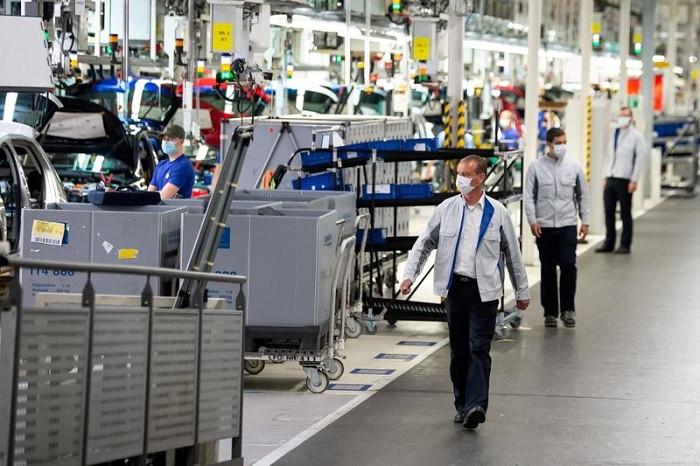HCOB's final Composite Purchasing Managers' Index (PMI), compiled by S&P Global and seen as a good gauge of overall economic health, fell to a three-month low 52.8 in May from April's 54.1.
While still comfortably above the 50 mark separating growth from contraction it was below a preliminary estimate for 53.3.
"Relatively resilient services activity growth should ensure that the euro zone regains some footing and shows a positive rate of expansion in the second quarter after GDP stagnated in the October-March period," said Cyrus de la Rubia, chief economist at Hamburg Commercial Bank.
A PMI covering the services sector dropped to 55.1 from April's one-year high of 56.2, below the 55.9 flash reading. A manufacturing PMI released last week showed the downturn in factory activity deepened as demand slumped despite prices falling.
Overall cost pressures were lower in May and both the composite input and output prices indexes fell. The output index dropped to 56.4 from 56.8, its lowest since April 2021.
While that will likely be welcomed by policymakers at the European Central Bank who have yet to get inflation down to target it was largely down to factories reducing prices as services firms, closely watched by the ECB, increased their charges faster.
Despite that, demand for services continued to rise and firms increased headcount, albeit at a slower pace. The employment index dipped to 54.6 from April's 11-month high of 55.6.
"The services sector is being supported by the strong labour market, rising wages and a tourism sector that is flourishing throughout Europe," said de la Rubia.
"The latter is confirmed by the new export business PMI, which includes tourism-related demand and remained near its series peak in May."
















